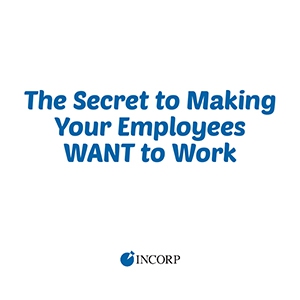Stay in the know!
Join our newsletter for special offers.
Most Americans do not look for a job solely based on a company's culture. There are other important variables to consider, such as salary, hours, and benefits. But once an employee has settled into his or her position, their working environment becomes paramount. As mentioned in our previous article, "How Happy Employees Equals A Hefty Bottom Line," a positive working environment is a reason for workers to have a sense of pride and satisfaction in their workplace. Theoretically speaking, if employees are happy, they will likely be more productive. Because of this, developing a company culture is vital to the success of every business.
Generation X wanted a stable place to work that would provide job security for years. However, with the boom of the tech industry, our up and coming workforce has been introduced to the idea of savvy, new-age offices complete with on-site ping-pong tables, gaming consoles, and a more hands-off approach to managing staff. Because of this, Millennials apply more emphasis on the values and community of a company over longevity and security.
We're not suggesting that you head to the nearest electronics store and spend hundreds of dollars on fancy toys for your office; that model isn't suitable for every business. But there are certain measures you can take to design a culture that will not only entice but also encourage Millenials to want to work for your business. Here are a few ideas:
Company culture is important in today's workforce. It should establish values, boost morale, and provide your staff with a sense of ownership, trust, and pride. Listen to your workers and figure out what makes them tick. You can do this by taking a survey to determine which values mean the most to your employees, and craft your culture accordingly. You'll be surprised to see how a small set of values can have such a big effect.
Join our newsletter for special offers.
